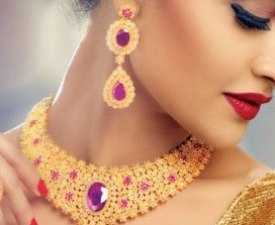Description
Course Name: Diploma in Gem and Jewellery
Course Id: DGJ/Q0001.
Education Qualification: 10th Class.
Duration: 370 Hrs.
How You will Get Diploma Certificate:
Step 1- Select your Course for Certification.
Step 2- Click on Enroll Now.
Step 3- Proceed to Enroll Now.
Step 4- Fill Your Billing Details and Proceed to Pay.
Step 5- You Will be Redirected to Payment Gateway, Pay Course and Exam Fee by Following Options.
Card(Debit/Credit), Wallet, Paytm, Net banking, UPI and Google pay.
Step 6- After Payment You will receive Study Material on your email id.
Step 7- After Completion of Course Study give Online Examination.
Step 8- After Online Examination you will get Diploma Certificate soft copy(Scan Copy) and Hard Copy(Original With Seal and Sign).
Step 9- After Certification you will receive Prospect Job Opportunities as per your Interest Area.
Online Examination Detail:
- Duration- 120 minutes.
- No. of Questions- 60. (Multiple Choice Questions).
- 10 Questions from each module, each carry 10 marks.
- Maximum Marks- 600, Passing Marks- 40%.
- There is no negative marking in this module.
| How Students will be Graded: | ||
| S.No. | Marks | Grade |
| 1 | 91-100 | O (Outstanding) |
| 2 | 81-90 | A (Excellent) |
| 3 | 71-80 | A (Very Good) |
| 4 | 61-70 | B (Good) |
| 5 | 51-60 | C (Average) |
| 6 | 41-50 | P (Pass) |
| 7 | 0-40 | F (Fail) |
Benefits of Certification:
- Government Authorized Assessment Agency Certification.
- Certificate Valid for Lifetime.
- Lifetime Verification of Certificate.
- Free Job Assistance as per your Interest Area.
Syllabus
Diploma in Gem and Jewellery
History of Gem & Jewellery
History of Art and Jewellery, Introduction to art and ornament, The ancient world, The middle age / masterpiece of middle age, Materials used in jewellery and ancient methods, Baroque to revolution, Georgian era jewellery (1714 to 1830, Victorian era jewellery (1837 to 1901)…mid and late Victorian period, Edwardian period jewellery, La Belle époque jewellery (1895 to 1914), Origins, Form and character, Relationship with contemporary style and movements, Sculpture and jewellery.
Manual Designing
Identification of tools, consumables, and equipments, Design Principles and its application, Basics of rendering using normal lead pencils and colours pencils, Merging two or multiple shades of colour pencils, How to draw different techniques used in manufacturing, How to show different textures when designing jewellery, Creating Designs based on design principles, Drawing different styles of stones, Shading different styles of stones, Incorporating setting while designing jewellery, Creating necklaces of different styles with stones and settings.
Jewellery Designing
Fundamentals of Jewellery Design & Gemology, Drawing & Rendering of Gem & Jewellery, Drawing & Rendering of Gem & Jewellery, Project & Reports, Internship Report, Fundamentals of Jewellery Designing, Jewellery Designing an overview, Elements of Designing, Sources & Inspirations, Lectures from Experts & Industry’s people, Gemology, Introduction, Characteristics and classification of Gem stones, Characteristics/Properties and classification of Metals, Metal Texture, Form of Metal Decoration, Type of Jewellery.
Classification of jewellery
Introduction to materials-(black and white), Drawing Lines (horizontal, vertical, wavy, diagonal, broken, thick and thin, gradation, spirals etc), Different pencils and their uses, Forms-circles, squares, other Geometrical shapes, Basic colour concept, Different color groups, Simple and complex color wheel, colour Gradation, Basic rendering concept, Light effect on different objects, Shading of different forms and shapes Black and white object rendering, metal effect rendering-different objects, plain metal rendering-14kt, 18kt, 22kt &24kt.
IPR & Hallmarking Process
Meaning, Relevance, Business Impact, Protection of Intellectual Property, Copyrights, Trademarks, Patents, Designs, Utility Models, Trade Secrets and Geographical Indications, Bio-diversity and IPR, Competing Rationales for Protection of Intellectual Property Rights, Concept of Patent, Product / Process Patents & Terminology, Duration of Patents- Law and Policy Consideration Elements of Patentability,- Novelty and Non Obviousness (Inventive Steps and Industrial Application, Non- Patentable Subject Matter.
Hand skectch designing tools
Creating Art: Students know and apply the arts, disciplines, techniques and processes to communicate in original or interpretive work, Art in Context: Students demonstrate how elements of time and place influence the visual characteristics, content, purpose and message of works of art, Art as Inquiry: Students demonstrate how the arts reveal universal concepts and themes. Students reflect upon and assess the characteristics and merits of their work and the work of others.

